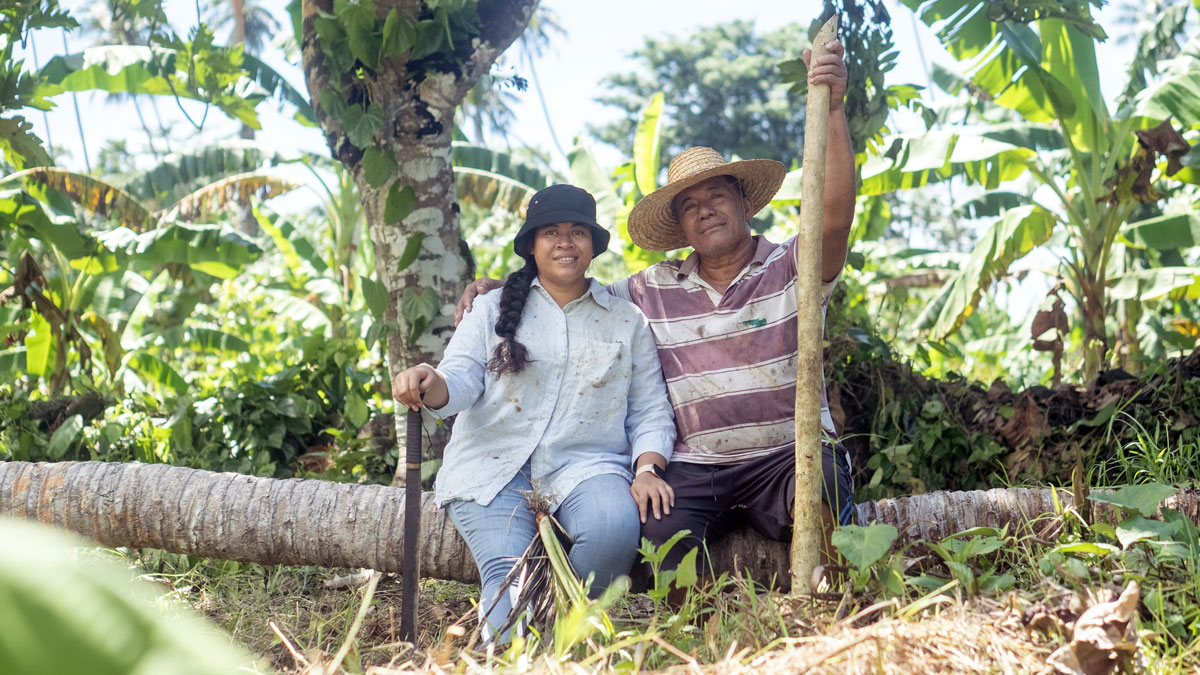
Meeting the local demand for certain meat products is not just an issue faced in Samoa; it is something that all Pacific Island countries struggle with today.
This has been highlighted over the years by experts, and recently, research is being conducted by Pacific students at The University of the South Pacific to find alternatives and potential solutions.
One such student is Tusiata Lemuelu, a young Samoan woman who makes a difference through her research and assists farmers in her home country.
Lemuelu grew up on the island of Savaii, one of the two main islands in Samoa, where she pursued her primary and secondary school education before she moved to Upolu to pursue her tertiary studies at the USP Samoa Campus.
“Throughout my high school education, my focus was always on commerce. I never studied agriculture. I remember almost every time after school, I’d help my dad, who had retired, with farming. It didn’t occur to me that this would be handy one day.”
Growing up with three sisters, Lemuelu realised earlier that she would have to work a little harder than some students as her parents were footing all their education tuition, amongst other necessities.
“I joined USP in 2016 to pursue my foundation studies. It took me three semesters to finish my foundation programme. It was because of the support from my family and relatives, and because of the work I had taken up, that I could pay my tuition throughout my foundation studies.”
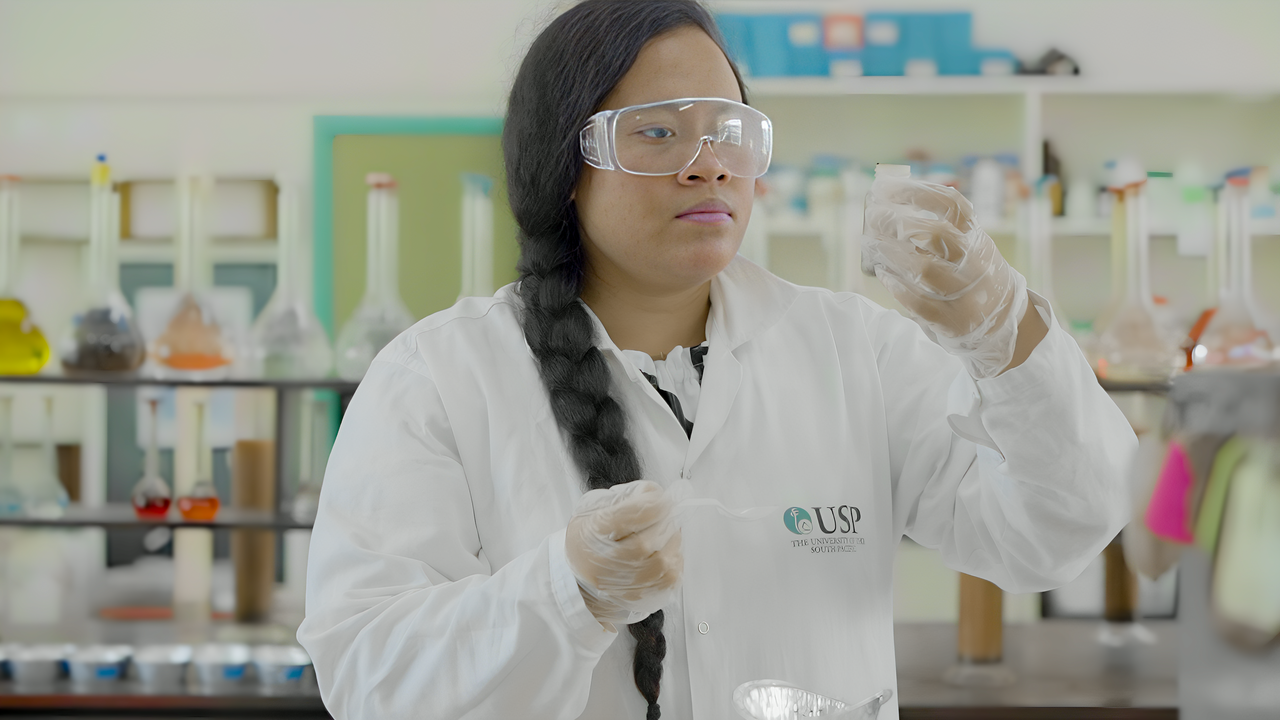
“During my foundation years, my focus was commerce, accounting, and economics. My relatives work in this field, and I thought I would probably do something similar.”
It wasn’t until she completed her foundation and prepared to pursue a Bachelor’s programme that she came to the realisation that pursuing her interest in the field of economics, commerce, or accounting would be costly, not only for her but for her family.
Stuck between a rock and a hard place, Lemuelu had to choose whether to pursue her dream or seek out an alternative programme that she could afford and still allow her to serve her people.
“Luckily for me, I had a mentor who was always my voice of reason, and she was also a former student here. She gave me the idea of agriculture. I remember being so scared because I wasn’t a science student. She told me that I could pursue agribusiness. It has the commerce element, but in a different field than I had initially imagined.”
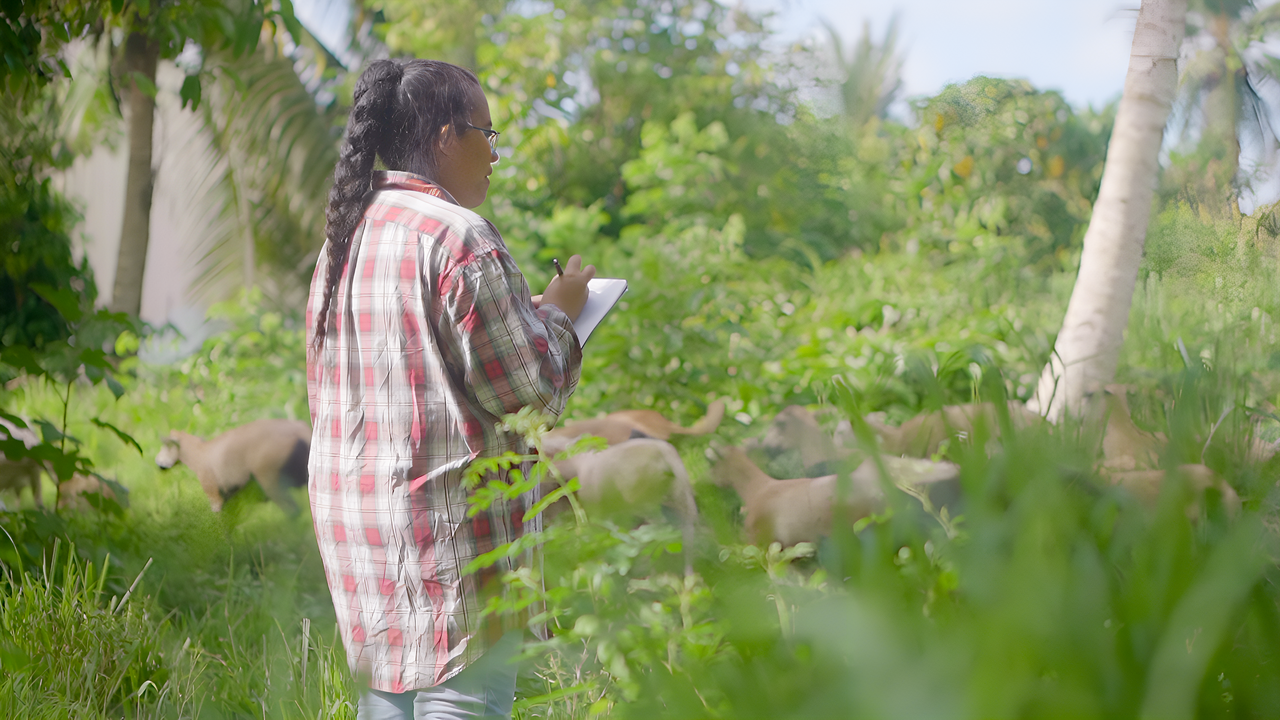
“At the time, the Samoa government provided scholarships for students who wanted to pursue agriculture studies. I realised this was a golden ticket for me and one I should try. I applied for it, and I secured a scholarship. From then on, the hard work and support from families, mentors, and friends got me through.”
During her undergraduate studies, she focused on her agri-business survey. For her final year, she led research on materials in poultry—the dilution of chicken feeds to counter the high price of imported meals.
“The problem was the high cost of commercial feed because we cannot produce or have any commercial feed available in the country. We try to see if there are any locally available and at a low cost that can substitute this commercial feed.”
Instead of relying on commercial feed, we explore ways to dilute the commercial feed using cassava leaves and copra meal.”
After completing her degree in 2020, Lemuelu received news that she could pursue her master’s degree; this allowed her to take a gap year that she had initially dedicated to pursuing a post-graduate diploma.
During this gap year, she joined the Ministry of Agriculture in Samoa, working with officials to identify farmers’ challenges on the ground.
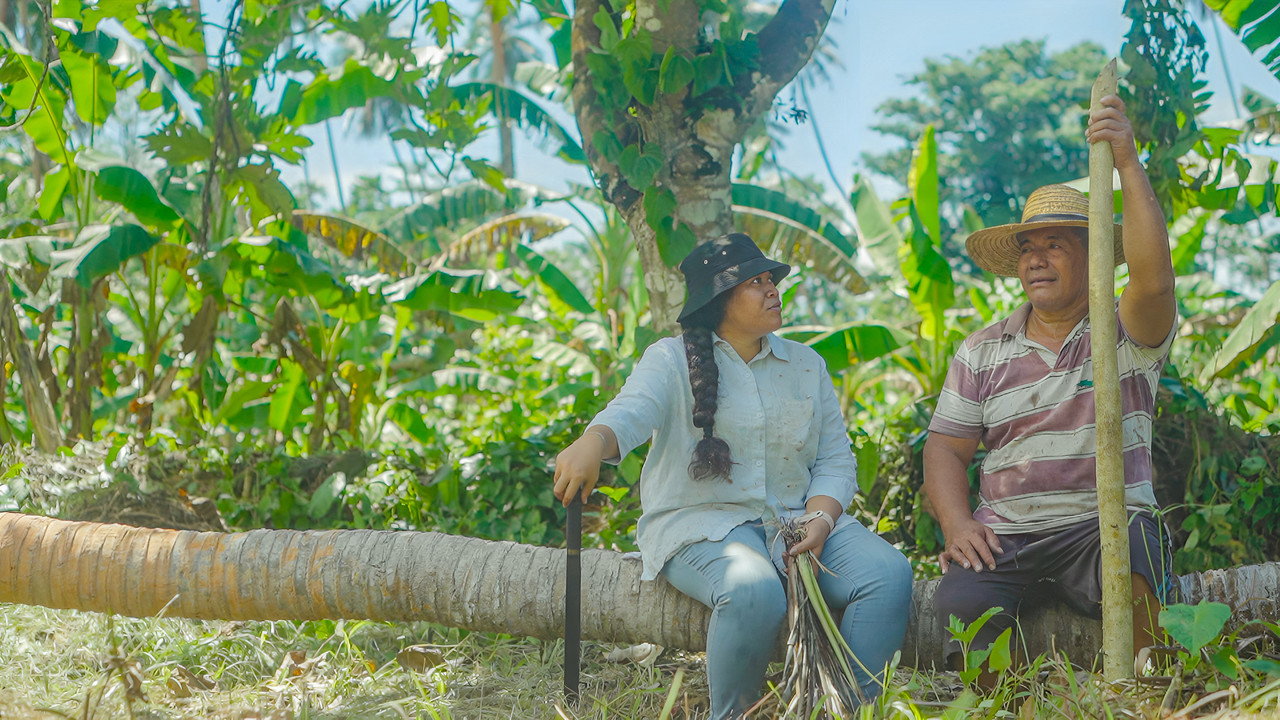
It was when she joined the ministry in 2021 to get some work experience that Lemuelu got a sense of fulfillment or self-satisfaction as she was able to help farmers and a way for her to give back to her community.
“I tried to find out the problems sheep farmers were facing. I get to go out in the field and do research project interviews. It didn’t take much for me to realise that the main issue facing farmers in Samoa is having access to proper markets.”
She quickly realised that sheep meat is the most expensive meat in Samoa, as 100 percent of it is imported from New Zealand or Australia, leaving local farmers to struggle with selling their livestock.
“Often, when sheep meat is available in supermarkets, it won’t take long to run out. Once the stock finishes, sometimes it would take a month or more for the import to arrive before people could buy them again.”
According to Lemuelu, Samoa’s agriculture industry and farmers need help to compete with imported meat products because consumers prefer imported meat over locally sourced meat.
She added that though the number of farmers and sheep flocks continues to grow in Samoa, farmers are losing out as they have no alternative market to tap into to get some form of income.
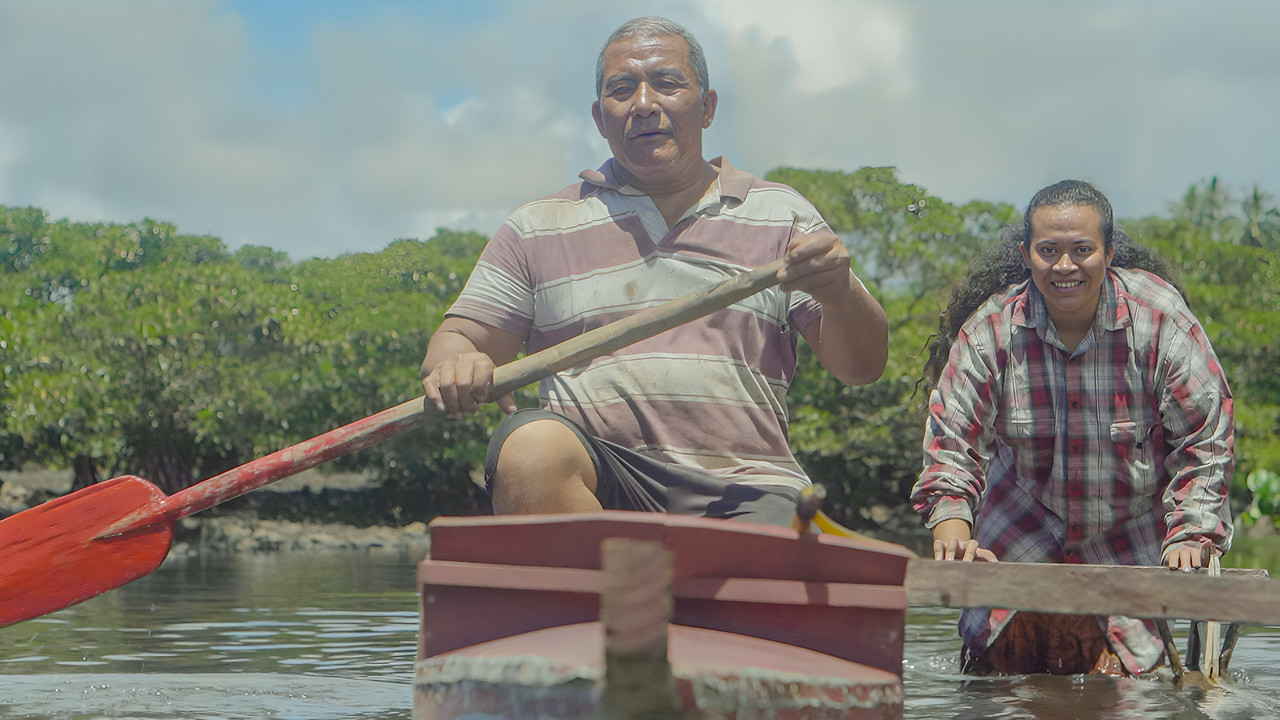
“It’s funny when we ask farmers about the purpose of their farming, and most of them say it is a source of income for the family. But at the same time, there’s no market for them to sell their products.”
“There is a Livestock Farmers Association, but few sheep farmers are in it. Our local farmers or markets are not interested in local sheep because the quality doesn’t meet the consumer’s preferences. That’s how I came up with my research topic for my master’s degree.”
After her stint at the Ministry, the aspiring young lass from Palauli, Samoa, decided to pursue her master’s degree under the ACIAR PASS-CR/USP Scholarship, focusing on animal husbandry, zeroing in on Domestic Livestock Production & Marketing and Imported Meat vs Domestic Meat Supply & Demand.
Like most other Pacific Island countries that rely on imported products, Samoa has had to pay excessive import bills over the years as the state of their agriculture has not been given much attention, and it’s “not the farmers who are the cause of this.”
Lemuelu adds that “the high importation of meat and certain agricultural products is causing the government’s loss of income. While there is potential to increase local production, little has been done to ensure this becomes a reality. One that would benefit our local economy and assist our farmers.”
Now an expert in animal husbandry, she is “looking at ways to improve the production of these animals and ensure the products meet consumer preference and can compete with imported products.”
“To be able to commercialise our meat product, at least for consumption within Samoa, we must make sure we take care of the animals. We have to ensure that they are taken care of, from their feed and the nutrients it contains, and that they have a balanced diet.”
“Most farmers back in the village still believe that traditional agricultural methods, where our ancestors used coconuts as feed and other practices, are still relevant today. They must realise that times have changed, and to meet the family demand for certain products, one ought to adopt proper farming methods and practices.”
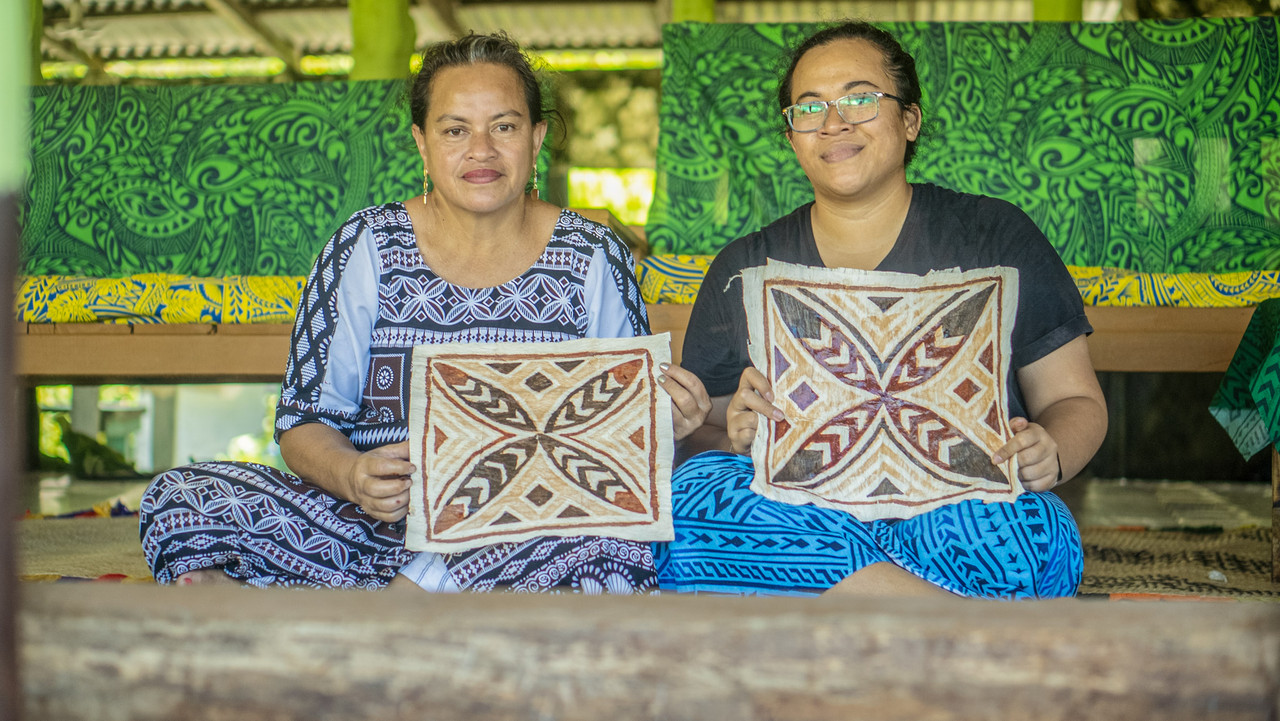
However, it’s not just the lack of agricultural development that hinders the progress of the industry in Samoa to meet local demand. As Lemuelu pointed out, animal feed’s unavailability, high cost, and climate change affect the agriculture sector and farmers.
“When it rains a lot, animals don’t often go out to graze, let alone eat as they used to on a normal sunny day. I am glad that more research is being conducted in this aspect, and we’re slowly identifying feed materials that can be incorporated into the animal feed so they can continue to eat.”
At the age of 26, Lemuelu has achieved more than she initially planned for and continues to push for the improvement of agriculture in her home country.
“It is also essential that while we’re doing research in such an area, we aim to make a difference. It wouldn’t make any sense if we did research, and it doesn’t help ordinary farmers solve some of their dilemmas or issues, or at the very least provide them with certain alternatives to make an income.”
The animal husbandry specialist shared, “If we want to commercialise farming and raise livestock, we have to find a way to make reports and research findings available to ordinary farmers.”
Strengthening policies and collaboration between farmers, government agencies, and research institutions is the way for Samoa and the Pacific to significantly reduce exorbitant agricultural import bills and meet local demand for agricultural products.
Lemuelu, the first graduate from Samoa to be awarded the top regional award for animal husbandry, believes it is important to the Pacific and her people to ensure food security for the region through proper agricultural development.
USP, as the leading institution in the region and a hub of cultural diversity, takes pride in its role in shaping the future of the Pacific and fostering intellectual growth.
Through the “Our People, Our Stories” campaign, we hope to share the inspiring journey of our students, graduates and staff whose work has contributed to forming a regional elite of educated Pacific Islanders.
In the Pacific, storytelling is more than just passing down information. It is a primary method for preserving our rich cultural heritage; it contributes to the formation and reinforcement of community identity, is an educational tool for imparting essential life skills, moral lessons, and cultural norms, and preserves indigenous languages.
“Our People, Our Stories” is about learning from the experiences of others, sharing personal journeys, challenges, and triumphs that offer valuable insights that can inspire, educate, and help others take that next step in their academic journey.
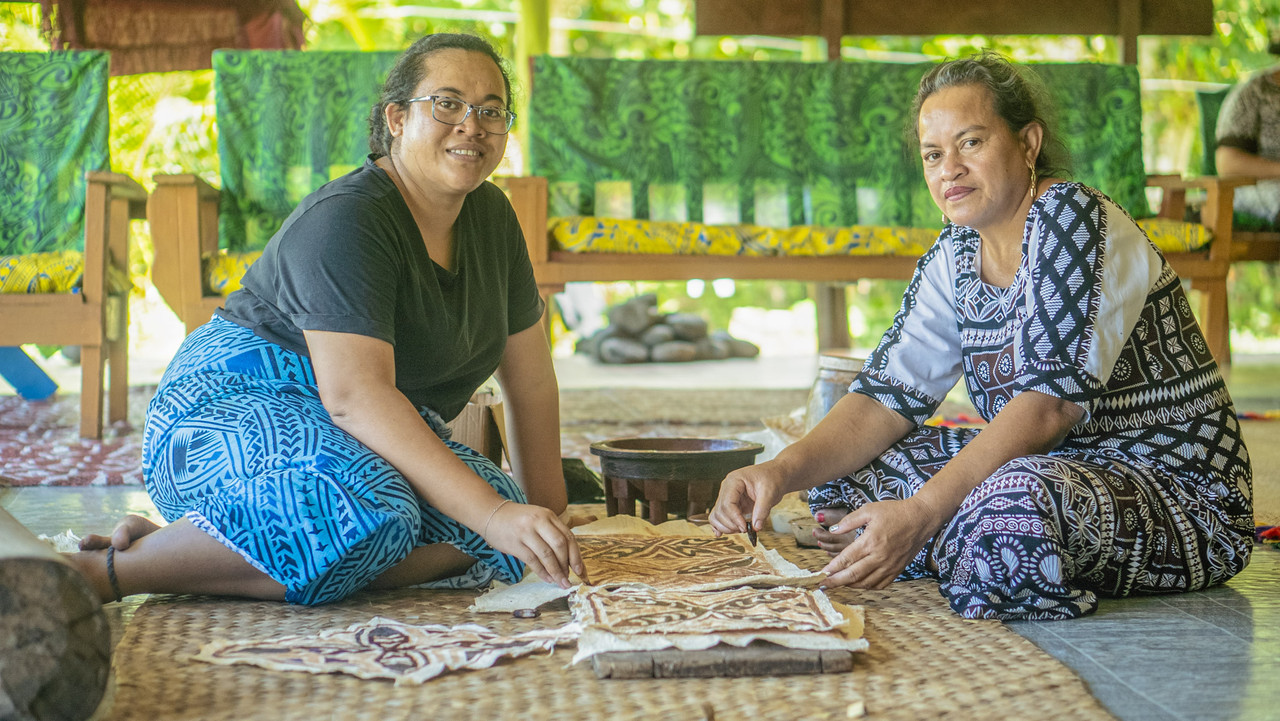
As Pasifika, we are communal people with a vast extended family network, and as such, one story of our USP student, graduate or alumni is enough to inspire young people and an entire generation to follow in those footsteps.
Click here to read more of our stories: https://www.usp.ac.fj/opos/
Stay tuned for the latest news on our radio stations


